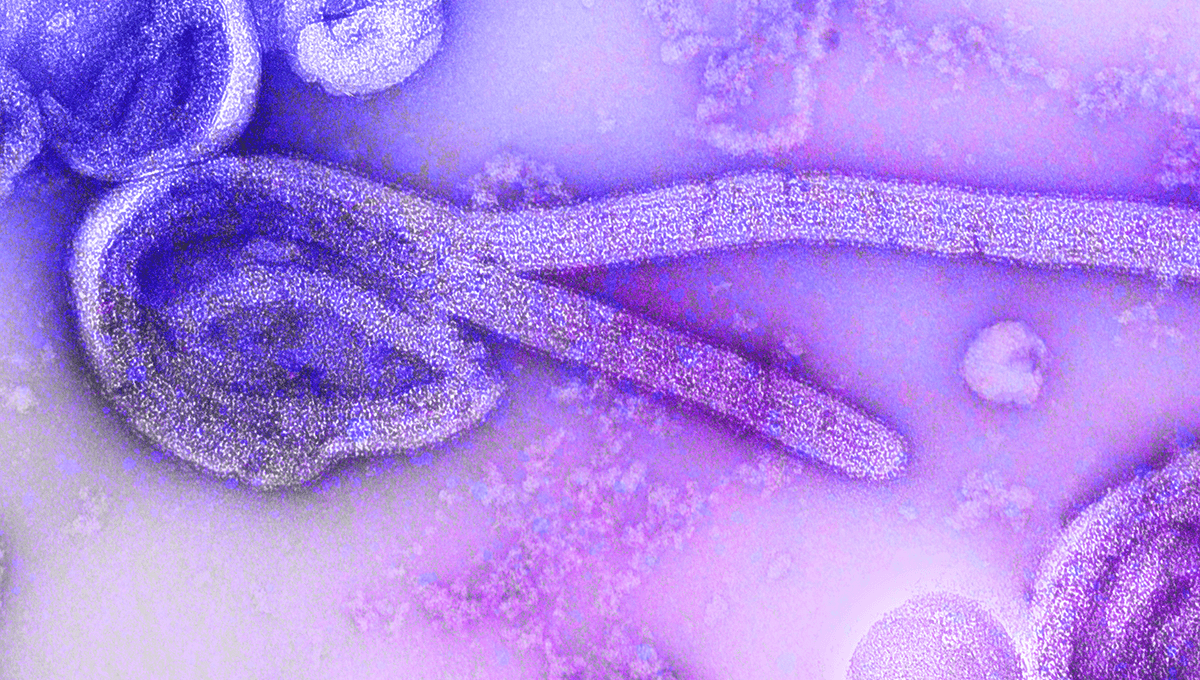
Monkeys infected with the deadly Ebola virus have been successfully cured by a 10-day regimen of pills, leading scientists to hope the treatment could be adapted for use in humans. The drug, obeldesivir, offers a substantial advantage over the two other FDA-approved treatments for Ebola as they have to be delivered via an IV drip, whereas pills are much more convenient to store and administer.
ADVERTISEMENT
Ebola virus disease, often just called Ebola, is among humanity’s most feared illnesses – and with some outbreaks in the past having mortality rates approaching 90 percent, it’s easy to see why.
The symptoms can come on suddenly, and initially are difficult to distinguish from other infectious diseases: fever, fatigue, muscular pain, headache, and sore throat. However, these can quickly progress to the more hallmark symptoms of Ebola, such as diarrhea, signs of impaired liver and kidney function, and bleeding, both internal and external.
For many years the only treatment options were supportive care, attempting to relieve the symptoms as much as possible. However, recent years have seen clinical trials leading to the approval of two specific monoclonal antibody drugs for Zaire ebolavirus strains: Inmazeb and Ebanga.
Another major breakthrough came with the development of vaccines. Ervebo was approved by the FDA in 2019 for use in adults, and there’s also a double-dose regimen combining two vaccines called Zabdeno and Mvabea that’s authorized by the European Medicines Agency.
However, vaccines aren’t necessarily helpful in an acute outbreak situation, and drugs that have to be administered via an IV infusion aren’t always practical either. That’s why recent research into a new drug, obeldesivir, has sparked so much interest.
“[Monoclonal antibodies] are expensive to manufacture and available only in limited quantities, and so they are presently reserved for the treatment of patients with confirmed disease or, rarely, as [post-exposure prophylaxis] for very high-risk exposures,” explained Armand Sprecher and Michel Van Herp from Médecins Sans Frontières in a 2024 Perspective.
ADVERTISEMENT
Obeldesivir, on the other hand, is cheaper to produce and doesn’t require strict storage conditions, so it could theoretically be administered to more people at risk of exposure in an outbreak scenario.
Following previous encouraging research, a new study has trialed the drug in cynomolgus (Macaca fascicularis) and rhesus macaques (Macaca mulatta). They were exposed to a high dose of the Makona variant of the Ebola virus, which has the potential to cause a fatal infection.
The drug is similar to remdesivir, an antiviral that’s used against a range of infections including COVID-19. It works by inhibiting the function of important viral enzymes called polymerases, blocking virus replication.
When the infected monkeys were treated with a daily pill for 10 days, starting 24 hours after exposure, 80 percent of the cynomolgus macaques and 100 percent of the rhesus macaques were protected from lethal infection. Rhesus macaques are closer, genetically speaking, to humans, so it’s a promising result from the perspective of future human treatments.
ADVERTISEMENT
As well as protecting the monkeys from death, the treatment also evoked an immune response. Senior author Dr Thomas Geisbert told AFP that obeldesivir is particularly exciting because it has the potential to work against multiple strains of Ebola, and even closely related viruses like Marburg virus.
Treating an outbreak of a disease like Ebola comes with complex practical, logistical, and cultural challenges. The largest-ever outbreak that took place from 2014-16 spread from Guinea into Sierra Leone and Liberia, causing more deaths than all the previous outbreaks combined.
Sprecher and Van Herp explained that contact tracers on the ground face a lot of reluctance from local people, who fear being hospitalized and potentially dying isolated from friends and relatives. A simple treatment that stands a good chance of protecting those who have been exposed to the virus – especially one that does not need to be administered in a clinical setting – could be a helpful tool in future outbreaks.
Further trials will be needed to confirm whether the promising results in monkeys can translate to humans too.
ADVERTISEMENT
The study is published in Science Advances.
Source Link: Pill That Cures Ebola In Monkeys Ignites Hopes For A Human Treatment